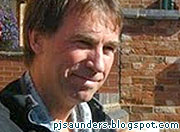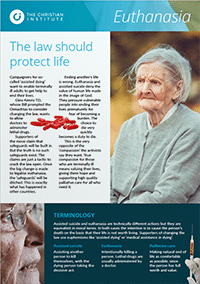The BBC risks “encouraging” vulnerable people to end their lives by screening an assisted suicide on national television, a doctor has warned.
On Monday viewers will watch motor neurone disease sufferer Peter Smedley end his life at a Swiss suicide clinic.
But Dr Peter Saunders has warned that the screening will breach “both BBC and international guidelines on suicide portrayal and risks encouraging further cases among those who are sick, elderly or disabled.”
Vulnerable
The death of the 71-year-old was filmed as part of a controversial new documentary fronted by Sir Terry Pratchett, a campaigner for assisted suicide.
But Dr Saunders cautioned: “The BBC’s guidelines are clear: ‘Factual reporting and fictional portrayal of suicide, attempted suicide and self-harm have the potential to make such actions appear possible, and even appropriate, to the vulnerable.’
“The World Health Organisation’s guidance states: ‘Don’t publish photographs or suicide notes. Don’t report specific details of the method used. Don’t give simplistic reasons. Don’t glorify or sensationalise suicide.’
Misuse
“This latest move by the BBC constitutes a misuse of licence-payers’ money and looks like evidence of a blatant campaigning stance.
“The corporation has produced five programmes since 2008 that show assisted suicide in a positive light.
Balancing
“Where are the balancing programmes illustrating the benefits of palliative care, promoting investment in medical support for vulnerable people or highlighting the dangers of legalisation?”
Dr Saunders, the campaign director of Care Not Killing, made the comments in a strongly-worded letter to The Daily Telegraph.
A close friend of Mr Smedley said: “Peter was an extremely private man and not someone that would want to share most things. But clearly he wanted to change the law.”
Death
Charlotte Moore, BBC commissioning editor for documentaries, has defended the broadcaster’s decision to film Mr Smedley’s death.
She said: “It is an extremely powerful and challenging scene – raw yet moving – but above all it is honest.
“Some people may question why we included this scene in the final cut. But in my view I don’t see how we could omit it.”
Cancer
Last month the BBC screened footage of a cancer victim’s dying moments on national TV.
The BBC claimed that showing the man’s death was “integral to understanding what happens to the body when it is no longer able to function properly”.
But speaking at the time Dr Peter Saunders said: “Some aspects of life are so personal and private that even if individuals give their consent to be broadcast, we are wiser to keep them private.”


